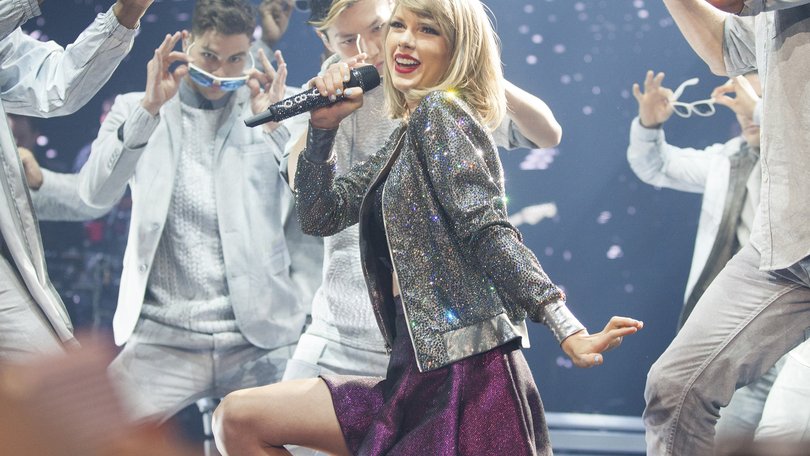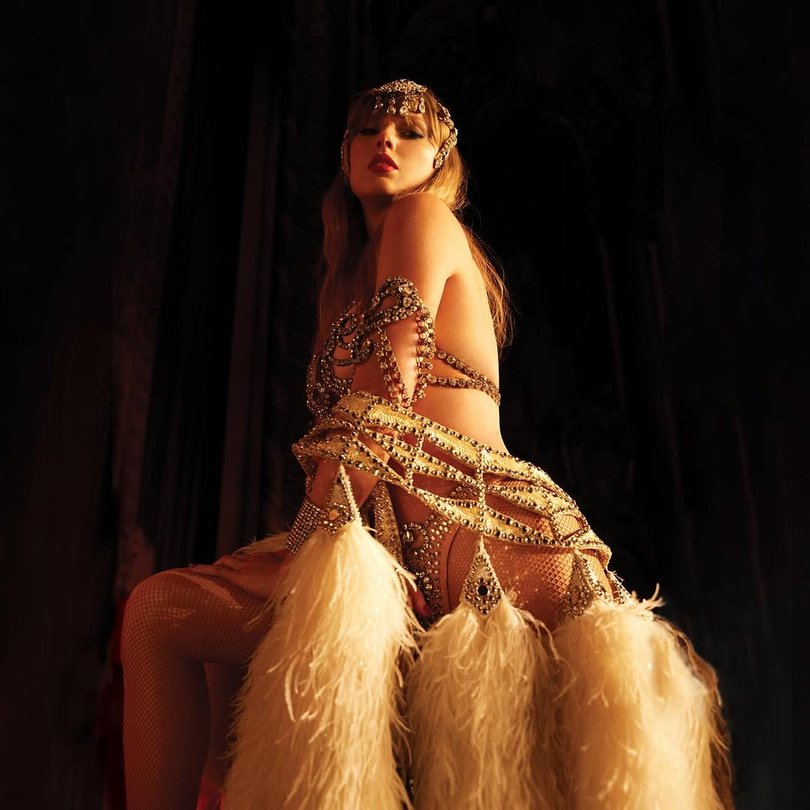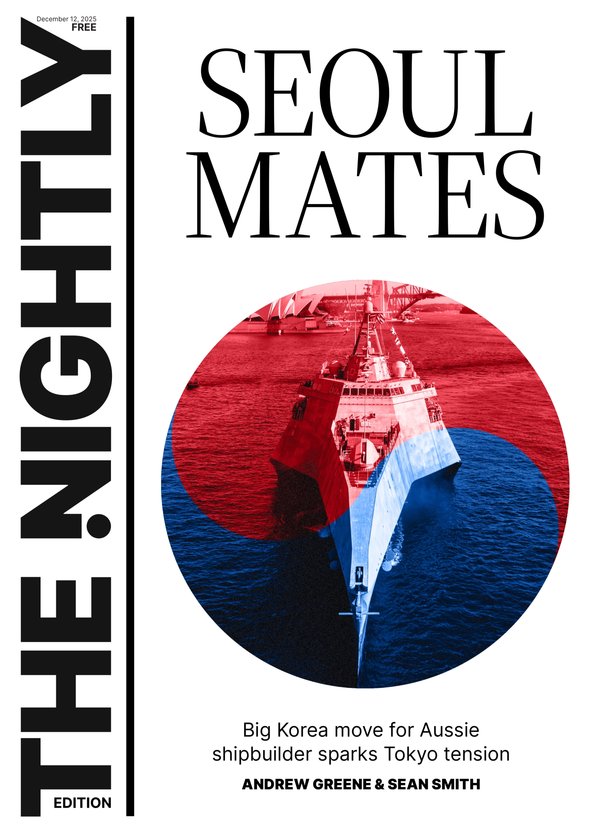THE NEW YORK TIMES Can Taylor Swift be an underdog and the world’s biggest pop star?

Last week, Taylor Swift did something highly unusual, in the context of the past decade of her career: She responded, however obliquely, to her critics. And it wasn’t in a song.
Asked by Apple Music radio host Zane Lowe how she felt about the reaction to her 12th original album, The Life of a Showgirl, Swift seemed to acknowledge that her latest work hadn’t been universally praised, or invariably defended by her loyal fans.
“I have a lot of respect for people’s subjective opinions on art. I’m not the art police,” she said, turning the focus to her listeners. “Oftentimes, an album is a really, really wild way to look at yourself, right? What you’re going through in your life is going to affect whether you relate to the music I’m putting out at any given moment.”
Sign up to The Nightly's newsletters.
Get the first look at the digital newspaper, curated daily stories and breaking headlines delivered to your inbox.
By continuing you agree to our Terms and Privacy Policy.On record, Swift has rarely been so equivocal.
On her 2010 song Mean, she promised a critic, “Someday I’ll be big enough so you can’t hit me,” and many of her best tracks wring grand catharsis out of us-vs-them narratives.
In the Swiftiverse, soft forms of persecution — by puritanical families, craven journalists or pop music fans — have provided endless fodder.
So have real-world foes whom she has turned into nearly cartoonish enemies in her music: Kanye West, after his infamous VMAs interruption, and Kim Kardashian, for later fanning the flames of that enduring conflict; Scott Borchetta and Scooter Braun, the executives who passed around her master recordings; boyfriends who have misled her, or worse.
Swift’s constant underlining of these conflicts — concrete or fantastical — has helped crystallise her image as pop’s perpetual underdog, an Everygirl striving alongside her spangly, invulnerable peers, even as she was well on the path to becoming one of the biggest stars the music world has ever seen.
She laid out the formula on one of her early hits from 2008, You Belong With Me, pitting girls like her — overlooked in T-shirts on the bleachers — against the popular ones who wear high heels and lead the cheer squad.
The teen fantasies slowly became more mature but never lost their comforting good-vs.-evil symbolism.
On Speak Now (2010), there was Mine, which finds a pair of lovers overcoming toxic families and working-class struggles, and Long Live,”where triumphing over the rigours of the music industry was like “fighting dragons.”
That was her first album to sell more than 1 million copies in a single week.
Swift’s 2014 LP 1989 introduced a defining trope of her songwriting: rebuffing, or ironically playing into, the media’s commentary on her personal life. Shake It Off and Blank Space, two of her biggest hits, called out “haters” who viewed her as a man-eater; on the paranoid, cinematic I Know Places, paparazzi become “the hunters” chasing Swift and a partner; on Wonderland prying eyes drive them “mad.”
The songs on 1989, in many ways, provided a clear assessment of Swift’s position in popular culture: Her foes weren’t mean individuals but systems that had long antagonised female stars of her ilk.
By Reputation three years later, the spectre of her enemies plotting against her and an obsessive public dissecting her had become not just a common antagonist in Swift’s music, but its dark, animating force: “I loved you in spite of deep fears that the world would divide us,” she sang on Dancing With Our Hands Tied.
Her character was so irreparably blemished by her public battles, she had to shed her old skin: The old Taylor was “dead.” On tour, she performed alongside fake giant snakes, adopting the imagery that Kardashian had used to smear her online.
But as Swift continued to foster an image of herself as perpetually on the ropes, her profile was exponentially expanding.
“My reputation’s never been worse,” she sang on that album’s Delicate - Reputation was her fourth to open with the equivalent of more than 1 million in sales.
The songs (and their success) reaffirmed the idea that Swift is at her most energized, perhaps even most ingenious, when in a defensive pose. In 2019, when Borchetta, the owner of her former label, Big Machine, sold the masters of her first six albums to Braun, a talent manager and associate of West, she kicked into a new creative gear.
Swift began releasing exact re-creations of the albums she didn’t own, packaged with new songs and artwork; the project gave her desire for retribution, previously just fuel for her lyrics, an ambitious formal conceit. She implicated listeners in her struggle in the process.
In fan parlance, the original records became “stolen versions,” as opposed to the rerecordings, Taylor’s Versions.
Swift had long fought her own battles. After the sale of her masters galvanised her fans, they loudly joined the fight, attacking anyone they perceived as an enemy, from actual foes like Braun to critics who negatively reviewed her albums. (In at least one instance, a writer was doxxed because her positive review was not positive enough.)
The Swifties, previously anodyne compared with many other online “stan armies,” were becoming known as trigger-happy and deeply vindictive.
And their numbers were growing: The Taylor’s Version project, as well as her stripped-back pandemic albums Folklore and Evermore, introduced younger listeners to her back catalogue and endeared older listeners to her image.
By the release of Midnights in 2022, Swift had proved herself to be an unstoppable sales force and a practically invulnerable public figure. By 2024, after tickets to her Eras Tour were so in demand, they caused a Ticketmaster meltdown, Swift was unquestionably the centre of pop’s solar system.

The Eras Tour ended in December 2024, after garnering nearly universal praise and grossing more money than any tour in history. In May, she bought back her masters, triumphing over Borchetta and Braun. West, her longtime nemesis now known as Ye, was no longer welcome in the rarefied spaces they had once shared.
She had a boyfriend, Kansas City Chiefs tight end Travis Kelce, who, like her, was dominant and beloved in his field.
And yet Showgirl is one of her most bitter, combative records in a long while. Multiple songs, including Father Figure and Actually Romantic, seemingly attempt to pick feuds with industry figures.
Wish List and Honey, ostensibly love songs, place her happiness with Kelce in a paradigm of conflict, outlining the privacy they’ve been denied and the terms of endearment that were once weaponised against her. “They say I’m bad news / I just say, ‘Thanks,’” she sings on Elizabeth Taylor. Cancelled! is a three-minute homage to being offed for “one single drop” of unapproved behaviour.
The disconnect is sharp and didn’t escape fans and critics. Journalists, once so fearful of Swift’s fans that the magazine Paste declined to attribute a byline to its pan of The Tortured Poets Department, gave Showgirl pointed reviews.
Swifties haven’t stepped up to defend her as much as they previously did. Many have pointed out that the numerous deluxe and limited-edition versions of this album — and its one-weekend-only cinematic event film — felt more like commercial than creative ventures.

Of course, Showgirl sold more than 4 million copies in the US in its first week, obliterating a record previously held by Adele.
By the numbers, Swift is bigger than ever. But reputationally, she might finally be the underdog she always saw herself as.
This article originally appeared in The New York Times.
Originally published on The New York Times
